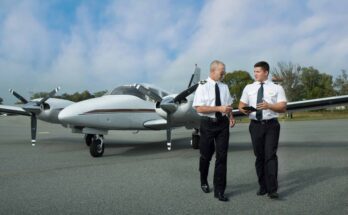🎯 Advantages of Choosing a Pilot Career
💸 High Income Potential
Pilots are among the top earners in many countries. An experienced commercial pilot can earn anywhere between $80,000 to $250,000+ annually, depending on region and airline.
🌐 Traveling the World
Imagine sipping coffee in Paris on Monday, exploring Tokyo on Wednesday, and relaxing in Dubai by Friday. This is the lifestyle of many international pilots.
👨✈️ Prestige and Respect
Pilots are respected professionals. Wearing that uniform comes with pride and dignity, which few other professions offer at such a visible scale.
😌 Job Satisfaction
There’s nothing quite like taking off, cruising above the clouds, and landing safely. Every flight is a unique experience—no boring 9-to-5 desk job here.
📚 Educational Path to Become a Pilot
🎓 Academic Qualifications Required
You generally need to finish high school with good grades in Maths, Physics, and English. But don’t worry, some countries allow non-science backgrounds too.
✈️ Flight School vs University Programs
You can either join a specialized flight school or pursue a university degree in aviation. Both paths eventually lead to flight training and certification.
🛫 Licenses and Certifications
-
PPL (Private Pilot License) – The first step.
-
CPL (Commercial Pilot License) – Allows you to earn as a pilot.
-
ATPL (Airline Transport Pilot License) – Required for airline captains.
🔧 Key Skills Students Gain in Pilot Training
🧠 Decision-Making and Leadership
Pilots make critical decisions every minute. Training hones leadership, especially in emergencies.
🔍 Technical and Mechanical Knowledge
Understanding aircraft systems, weather, navigation, and physics is part of daily life as a pilot.
⏳ Time and Stress Management
Pilots work under pressure and time constraints, learning to stay calm and composed at all times.
💰 Scholarships and Financial Aid Opportunities
🎓 Aviation Scholarships for Students
Many organizations like IAF, CAE, and Airbus offer aviation scholarships to support deserving students.
🏛️ Government and Private Funding
In countries like India, USA, UAE, and Canada, government aviation bodies and private airlines offer training sponsorships.
🎓 Conclusion
Choosing a career as a pilot is more than just chasing a dream—it’s about commitment, growth, and seeing the world from a whole new perspective. For students looking for a thrilling, rewarding, and ever-evolving profession, the sky truly is the limit.
❓FAQs
1. What is the minimum age to start pilot training?
You can start basic aviation training at 16 years old, but most commercial training begins at 18+.
2. How long does it take to become a commercial pilot?
Typically, it takes 18 to 36 months, depending on training pace and country.
3. Can students become pilots without a science background?
Yes, but science (especially Physics and Math) is strongly recommended and often required.
4. Is pilot training difficult?
It’s challenging but doable with focus and dedication. The toughest part is consistency.
5. Do female students have equal opportunity in aviation?
Absolutely! Many airlines actively support female pilots through scholarships and inclusion programs.


